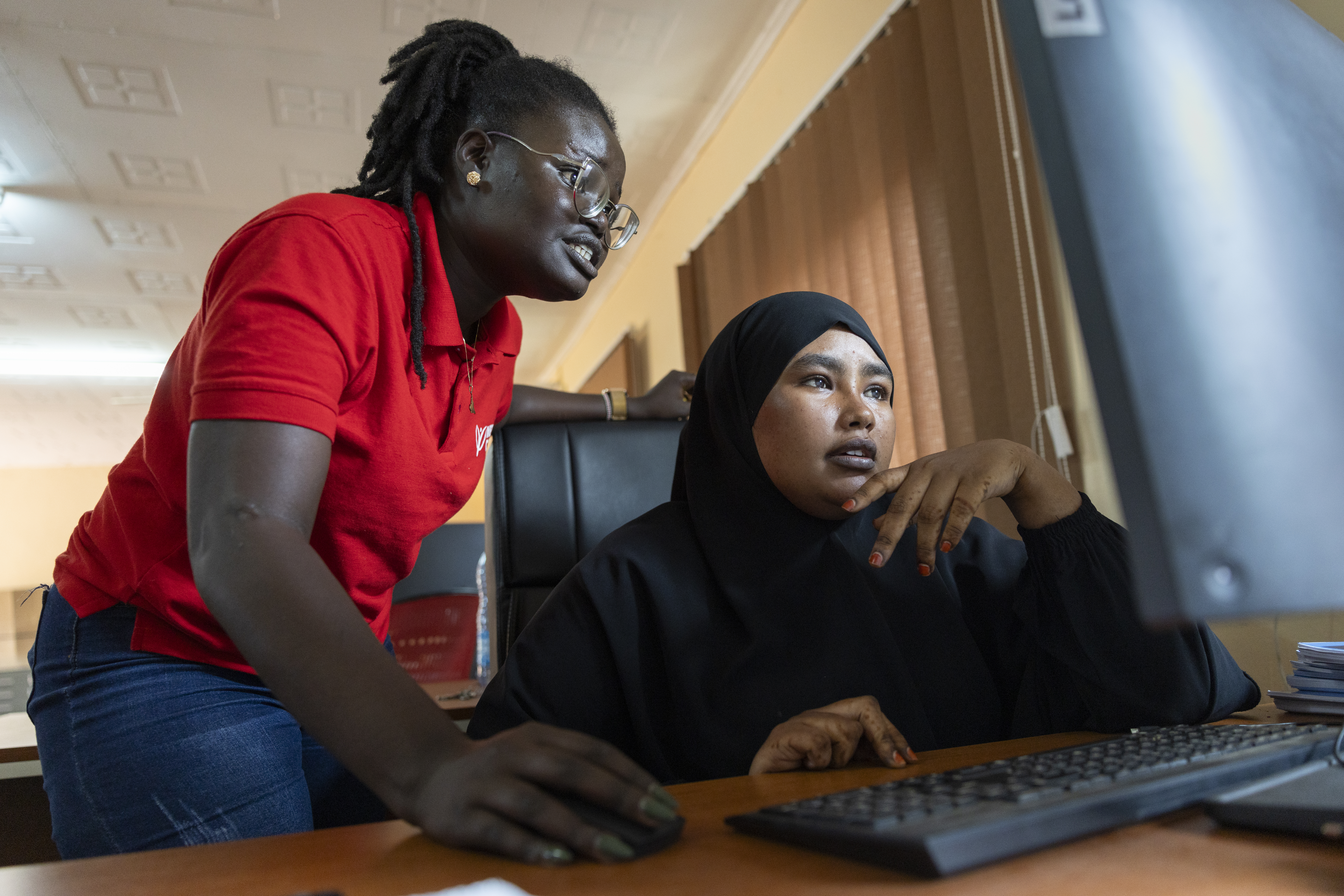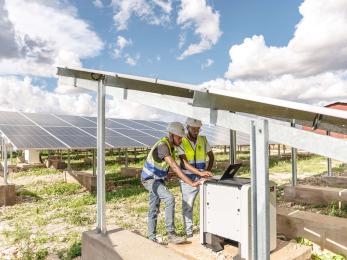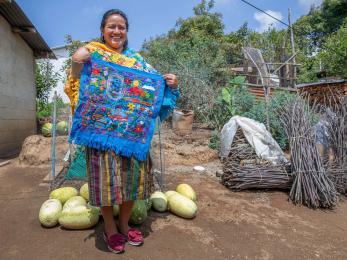How rural women are cashing in on the milk business

Milk is a staple in Ethiopia. In many rural communities, it’s an important source of nutrition — and a critical source of income.
Yet the practice is burdensome, and the market unstable: According to tradition, women collect and sell milk from their families’ livestock, but there’s no way to sell it other than walking several hours to hawk it for meager earnings along the highway. How much money you make on a given day depends on how many cars choose to stop for you.
In this precarious process, however, we see possibility.
Mercy Corps helped expand the Berwako Milk Processing Factory in Jijiga, Ethiopia, connecting rural farmers in remote areas with a stable market to sell their milk. Berwako is also the only factory in the country that can process camel milk, giving Ethiopia’s pastoralists a critical new channel to make money.
Now, families in rural communities and bustling cities across the region are reaping the benefits of a stronger milk market. They’re earning more money, finding more opportunities, and building more secure lives.
In Ethiopia, this is what the business of milk looks like.

On a hot May morning, women from a rural village about an hour outside Jijiga strap jugs of raw milk to the backs of their donkeys, and set off in a large group to meet the Berwako milk truck about eight kilometres away. Ethiopia’s drought has left the road too cracked for the truck to get any closer.

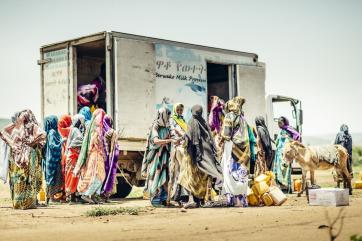
When the group of about 40 women meet the truck at the drop-off point, they unpack their donkeys and gather in a crowd to trade the milk they’ve brought.
This two-and-a-half-hour walk is less than half the distance the women used to walk to sell milk to middlemen or drivers on the highway, which was an inconsistent and unreliable market.
“We used to sell to middlemen,” says Hibo, one of the village women. “When we would give them milk, they would say there are problems, we’ll give you your money tomorrow. They would not give us immediate cash.”
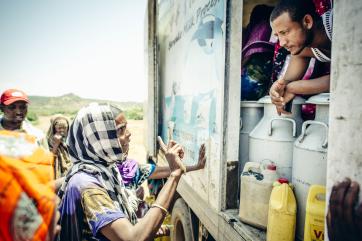
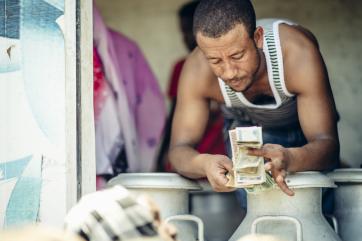
On the truck, the Berwako staff tests the milk and empties it into refrigerated coolers to keep it from spoiling on the drive back to the city. While camel milk can be shelf stable for many days, cow milk perishes quickly in the Ethiopian sun; refrigeration keeps it cold until it’s back in the factory.
Each woman here is representing a small co-operative of other women from the village. The groups pool their milk every day and take it in turns to meet the truck. The woman who delivers it keeps the cash for the day. Today, they take home about £30.

When the transaction is complete, the women count their profits and start the journey back home, while the truck readies to transport the milk to the factory.
In villages like these, opportunities are scarce. This simple truck is life-changing: No longer do these women have to carry their milk for eight hours without knowing whether they can sell it. The days of standing along the highway are over. Because of Berwako, they are better able to care for their families and build stable lives.
“Our milk has increased and our income has increased,” Hibo says. “I have a dream that my children would join the school and graduate, and in the future, they will change our lives.”

Back at Berwako, the milk is unloaded for processing. Ethiopia’s drought has forced many of its pastoralists to journey far from home to find water for their animals. The factory has tried to follow them as best it can, but it will take until the return of the rainy season for production to get fully back up to speed. When the factory is fully operational, it will be able to hire more than 30 new workers.
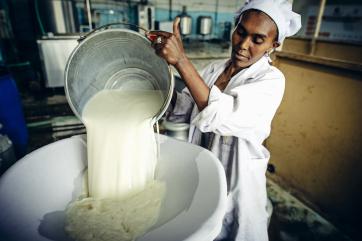
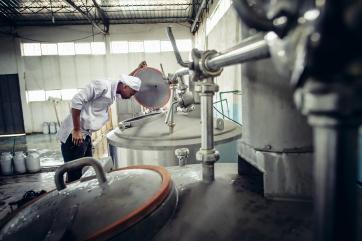
Inside, the milk is strained, processed and bottled for distribution. Berwako serves about 350 households in rural villages that surround the city. As its number of suppliers has grown, so has its list of vendors. The factory even exports to Djibouti and Somalia and hopes in the future to use the milk to make chocolate and cosmetics.
“[The advantage is] not only between the factory and the pastoralists,” says Antenh, Berwako’s operations manager. “In this state, there are [many] beneficiaries from this project — small shops and retailers you can visit in the town.”
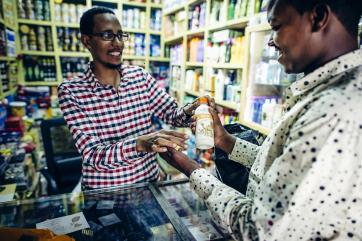

Around 30 retailers in Jijiga now carry Berwako’s milk, including Ayele, who owns one of the city’s most popular shops.
Ayele sold milk imported from Yemen for 10 years until Berwako recently came to him asking if he would like to stock local milk instead. Now, he carries milk farmed from nearby animals that is processed just down the street.
Every day he orders 160 bottles from the factory — and every day he sells out. “They love it,” he says.
